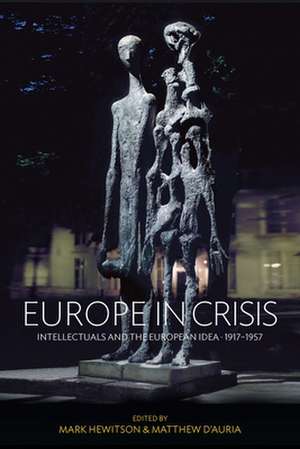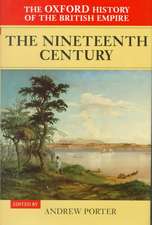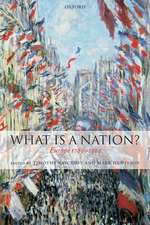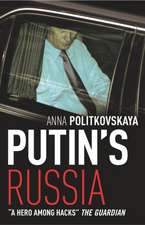Europe in Crisis
Autor Mark Hewitsonen Limba Engleză Hardback – 9 dec 2012
Preț: 808.03 lei
Preț vechi: 1049.39 lei
-23% Nou
Puncte Express: 1212
Preț estimativ în valută:
154.61€ • 161.86$ • 127.93£
154.61€ • 161.86$ • 127.93£
Carte tipărită la comandă
Livrare economică 07-21 aprilie
Preluare comenzi: 021 569.72.76
Specificații
ISBN-13: 9780857457271
ISBN-10: 0857457276
Pagini: 360
Dimensiuni: 159 x 236 x 24 mm
Greutate: 0.65 kg
Editura: BERGHAHN BOOKS INC
ISBN-10: 0857457276
Pagini: 360
Dimensiuni: 159 x 236 x 24 mm
Greutate: 0.65 kg
Editura: BERGHAHN BOOKS INC
Notă biografică
Mark Hewitson is Senior Lecturer in German History and Politics and Chair of the Centre for European Studies at University College London. His publications include books on National Identity and Political Thought in Germany (OUP, 2000), Germany and the Causes of the First World War (Berg, 2004), Nationalism in Germany, 1848-1866 (Palgrave Macmillan, 2010) and What is a Nation? Europe, 1789-1914 (OUP, 2006, co-edited with Timothy Baycroft). Matthew D'Auria is completing his PhD in history at University College London, where he has taught European history, and social and political thought. He has published various studies of the relationship between nationalism and internationalism in the history of European political thought from the eighteenth to the mid-twentieth century. He is currently a Research Fellow at the University of Salerno.
Recenzii
"The contributions are of a high standard - In almost all cases there was much that is new and interesting. There is more than enough substance, interest and range for this to be an effective contribution." * Peter Stirk, Durham University "[A]n excellent introduction to the history of the concept of 'Europe' that preceded the founding of the European Community in 1957. Spanning a wide range of authors and topics, it is essential reading for anyone interested in the intellectual history of European integration." * Egbert Klautke, University College London















